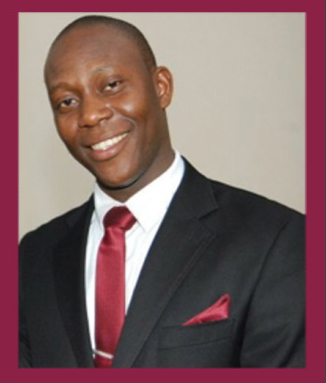WSU School of Social Work

International youth activist will discuss need for "Social Workers Without Borders"
The humanitarian crisis caused by the Ebola outbreak in West Africa is the result of governmental and health system instability that could be ameliorated there and in other regions of the world by a "standing army" of social workers, an international youth activist will tell a Wayne State audience on March 12.
Simon Tsike-Sossah, founder of the youth development initiative African Community Internship Placement Program, will present "In the Wake of Ebola: The Case for Social Workers Without Borders" in the David Adamany Undergraduate Library's Bernath Auditorium from 3:30 to 4:30 p.m. A guest of the Wayne State School of Social Work, Tsike-Sossah will discuss how social workers create the types of linkages between community and national health systems that were deficient in Sierra Leone, Liberia and Guinea, resulting in a disorganized and inefficient response to the outbreak.
The Ebola outbreak has demonstrated the need for a coordinated deployment of social workers to crisis-stricken areas to provide direct care and services to children and families, mobilize communities, facilitate cooperation between between local, regional and national systems of care, and guide policy. Had it existed, Social Workers Without Borders could have played a key role in containing the Ebola outbreak and mitigating the disease's impact on families and communities through psychosocial support, Tsike-Sossah argues. Among other things, he notes, social workers could have educated those treated for the disease about ways to avoid transmitting the virus and helped combat the stigma and fear that caused orphans of Ebola victims to be turned away from traditional sources of social assistance. They could also have provided counseling for families affected by Ebola grappling with a range of emotions, including panic, shock, loss, grief, shame, suspicion and anger.
"With Ebola we realize that indeed, our world is a village, [and] like a village, one person's problem is everyone's problem," Tsike-Sossah has said. "Ebola has exposed our connectedness more than ever as a world."
For more information on the lecture, contact Betsy Cutcher at elizabeth.cutcher@wayne.edu. RSVP by March 11 via http://doodle.com/u76i7ifzfb7wnsg2